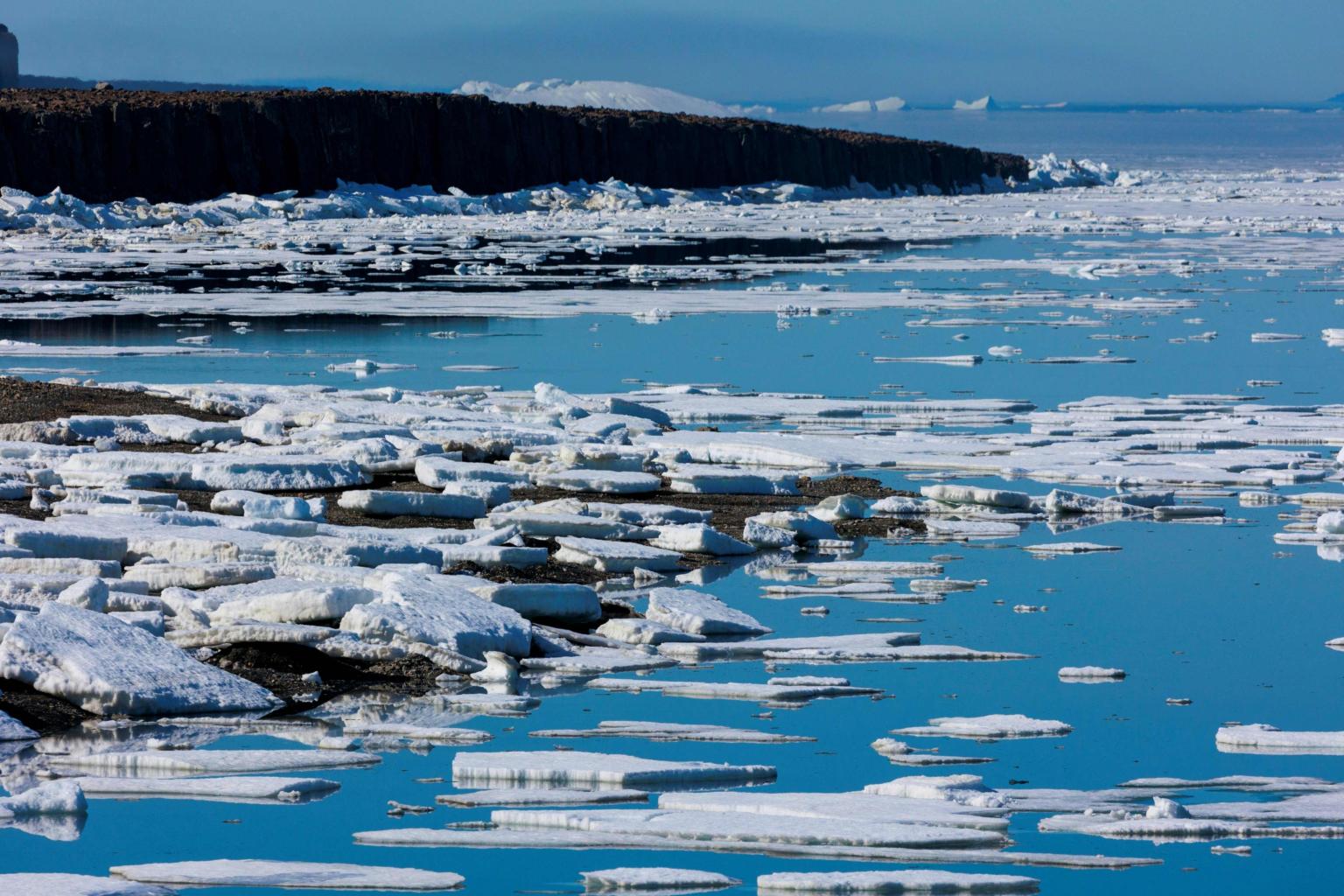UN talks fail to seal high seas treaty but observers say progress made
Sign up now: Get ST's newsletters delivered to your inbox

Only about 1 per cent of the high seas is regulated.
PHOTO: AFP
SINGAPORE - Marathon talks at the United Nations on a global treaty to conserve and protect nature on the high seas ended without agreement on Saturday (Aug 27).
Observers expressed disappointment that the Aug 15 to 26 negotiations - at the UN headquarters in New York - failed to clinch a deal, but noted progress had been made.
Discussions on the treaty, which has been years in the making, were meant to be the fifth and final round, and come as the world's oceans face increasing threats from climate change, overfishing and pollution, and rising concerns about plans for seabed mining.
"While it is disappointing that the treaty was not finalised during the past two weeks of negotiations, we remain encouraged by the progress that was made. We urge all delegates to sustain this momentum and complete the treaty in a resumed conference later this year," said Ms Liz Karan, project director of the Protecting Ocean Life on the High Seas programme at The Pew Charitable Trusts, in a statement.
Only about 1 per cent of the high seas is regulated, and a treaty for the conservation and sustainable use of marine biodiversity beyond national jurisdictions, or BBNJ, is regarded as urgent.
The high seas cover areas of the world's oceans that extend beyond 200 nautical miles (370km) from any shore and beyond the jurisdiction of any country.
The deal, if it had been concluded, would have given world leaders a legally binding mechanism for managing two-thirds of the ocean that lie beyond national jurisdictions, said conservation group World Wide Fund for Nature (WWF).
"Countries are acting as if we have time. We don't," said WWF International director-general Marco Lambertini in a statement.
"We need an ambitious ocean treaty now if we are to halt the decline of ocean health for the benefit of the planet and humanity. We need a massive infusion of political will," he added.
Mrs Rena Lee, Singapore's Ambassador for Oceans and Law of the Sea Issues, presided over the negotiations, and it is not clear when they will resume. Conservation groups are pushing for another session before the end of the year.
WWF said there has been significant progress in the draft text. There are provisions that ensure nations shift away from the current situation where the high seas are open for all, with recognition of the need for "common stewardship and collective responsibility".
"The treaty is a package that includes complicated issues such as sharing of benefits from the use of genetic resources from the ocean, as well as conservation measures and restrictions in the current regime of freedom of the high seas," it added.
WWF said that among the areas of progress was the inclusion of strategic environmental assessments, which would operationalise the obligation set out in the UN Convention on the Law of the Sea (Unclos) to subject all planned activities in areas beyond national jurisdiction to an environmental impact assessment process.
In a statement to a UN oceans conference in June, Singapore Foreign Minister Vivian Balakrishnan said a BBNJ treaty "would be grounded in Unclos and would strengthen multilateral cooperation, conservation and sustainability in the use of our global commons".
WWF said there was also a commitment for enhanced cooperation, ecosystem-based management and important provisions on the establishment of marine protected areas. "This is very encouraging," it added.
Sharing of marine genetic resources is also key, especially for developing nations. These resources include biological material from plants, algae, animals and microbial or other organisms that could be used for products such as drugs or cosmetics - commercial goods that could yield big profits for wealthy corporations. Poorer nations say they should share in the proceeds.
Ms Sofia Tsenikli, senior strategic adviser to the High Seas Alliance, a coalition of more than 40 non-governmental groups, said in a statement: "It has been uplifting to witness the global momentum for ocean action steadily build throughout these negotiations.
"Communities across the world are asking for decisive ocean action to protect marine life and safeguard the vital role the ocean plays for the climate, global food security and the overall health of our planet."
Conservation groups say a treaty is vital to achieving a related but different goal of protecting 30 per cent of the oceans by 2030. The UN is hoping to clinch this target during a major conference in December of parties to the Convention on Biological Diversity.


